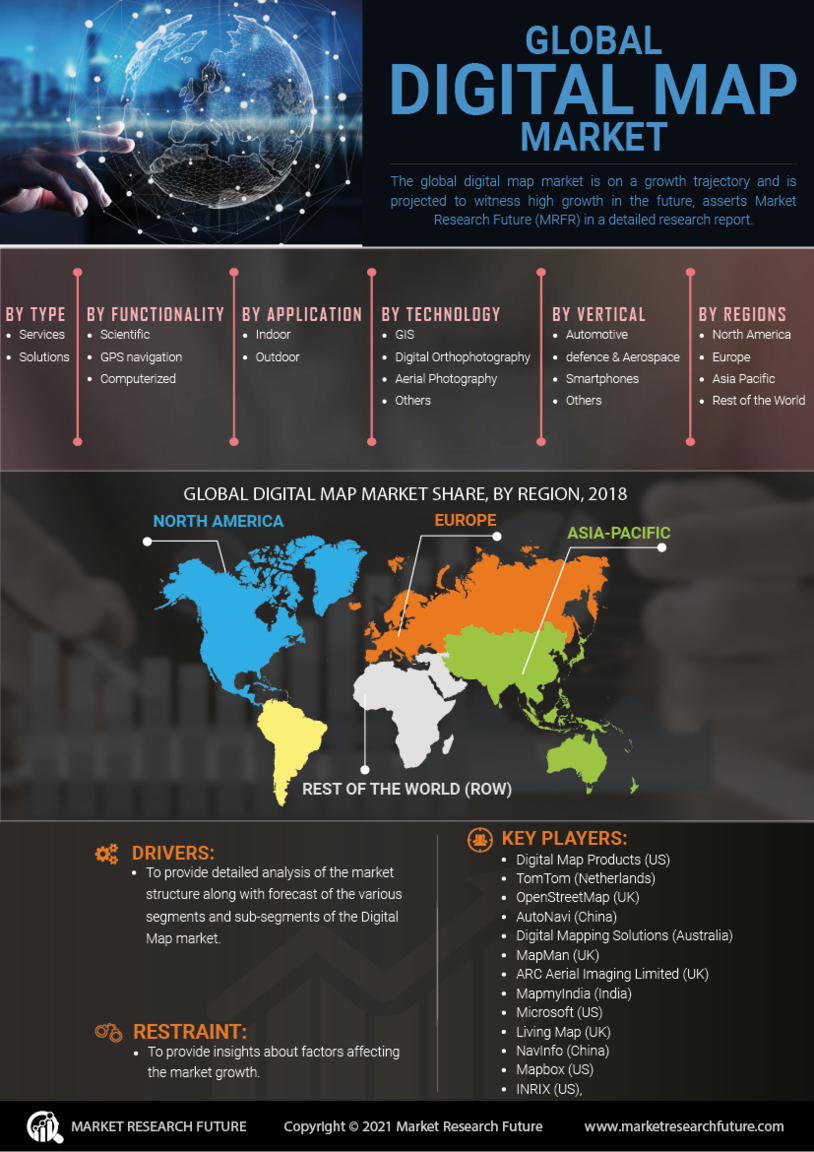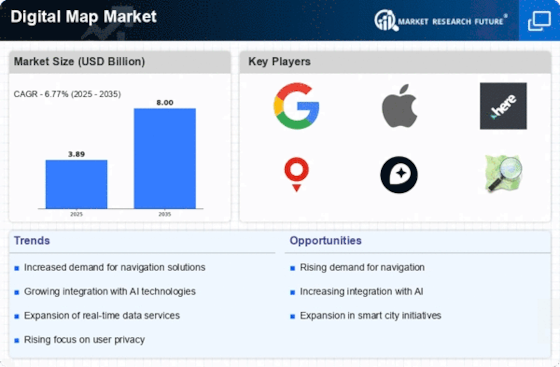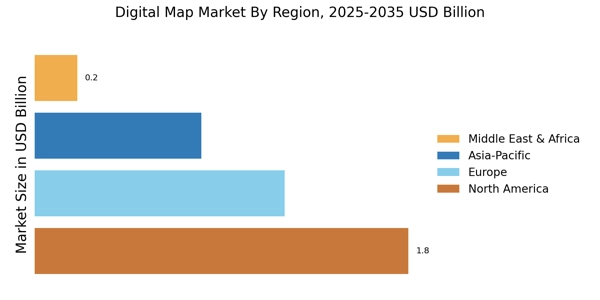Research Methodology on Digital Map Market
Market Research Future's report on the global digital map market provides a comprehensive assessment of the market from the market’s microscopic perspective. It consists of an in-depth analysis of the objectives, methodology, technical aspects, and design type of the report. The report also conducts an extensive survey that originates from a comprehensive review and analysis of the collected data.
Research Objectives
The objective of the market research report is to provide an accurate and comprehensive analysis of the global digital map market to identify key market drivers, opportunities, and challenges. Additionally, it aims to provide a comprehensive assessment of the market’s growth potential by assessing the current market situation and assessing the potential future growth trajectory.
Research Design
The research design of the report follows a systematic approach wherein primary and secondary sources of information are systematically used to provide detailed insights into the market. Primary sources of information include interviews, surveys, and expert opinions. Secondary sources of information include market databases, company reports, and industry publications.
Secondary Research
For the preparation of this report, secondary research techniques are used. In line with the research objectives, information from relevant sources is gathered and collated using a combination of automated web searches and manual searches. Automated web searches are used to acquire up-to-date market data. Additionally, manual searches are conducted to acquire information from trade associations, professional networks, and magazines. The secondary research undertaken enables us to identify and evaluate drivers, opportunities, and challenges and devise strategies and plans to counter them.
Primary Research
Primary research is carried out to gain a first-hand perspective of the market’s stakeholders, such as consumers, manufacturers, suppliers, and market experts. We have carried out in-depth interviews and surveys to gain details and perspectives of stakeholders. Extensive interviews are conducted to acquire detailed market data and company information.
Sampling Design
The sample design for the primary research is designed in such a way that it covers the whole market. The sample size consists of experts, journalists, industry professionals, and market analysts from public and private organizations. The sample size is determined based on Experience Curve Analysis. The sample is stratified based on type, size, region, and end-use industry.
Analysis Methodology
The report provides market sizes and forecasts for the global digital map market. The data obtained from primary and secondary sources is analyzed using statistical and descriptive techniques. These include Porter’s Five Forces Analysis and SWOT Analysis. In addition to this, the study has adopted a value-chain analysis to identify significant upstream and downstream activities. To provide a fair assessment of the market’s competitive landscape, we have adopted a top-down approach to provide an extensive market share analysis, using expert opinions and market data from secondary sources.
Data Interpretation
The collected data comprises figures that are collected from interviews, surveys, research papers, and expert opinions. The data collected is subjected to triangulation to generate accurate estimates and forecasts, which are then validated using statistical hypothesis testing. To determine the digital map market’s trends and forecasts, the collected data is further subjected to qualitative and quantitative analysis. This further enables us to provide comprehensive insights into the market.
Assumptions
This digital map market research report is developed based on certain assumptions, which include steady growth in the applications of digital maps. In addition, it assumes that the availability of technology to develop digital maps and their demand will increase over the forecast period. Moreover, the report also assumes that the entry of new players in the market, and the market’s synergy with the automotive industry, will lead to the growth of the market for digital maps.
Moving further, the report also assumes that factors such as the development of high-end and more advanced digital maps, and growth in the number of connected cars will drive the market’s growth over the forecast period 2023 to 2030.
Furthermore, the report assumes that developments in the field of artificial intelligence and 3D mapping, and technological advancements to enable more accurate digital maps will catalyse the growth of the digital map market. Additionally, the report assumes that high growth in the automotive industry, especially in the Asia-Pacific region, will drive the demand for digital maps in the segment.


















